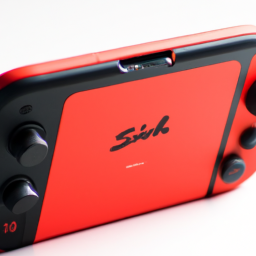Nintendo's Battle for Control: The Emulation Dilemma in Gaming
In recent years, Nintendo has found itself embroiled in legal battles concerning emulation and copyright protection, as highlighted by the rising popularity of PC form factors resembling the Nintendo Switch. This speculation arises from Nintendo’s actions targeting YouTube videos showcasing Steam Decks running Switch games and going after Dolphin (GCN/Wii emulator) developers following their Steam listing announcement.

The issue extends to Nintendo’s confrontation with the legality of reverse engineering, particularly in the European Union, where laws allow reverse engineering for interoperability if certain conditions are met. This has raised questions about the propriety of copying, downloading, and emulating games, with debates surrounding the ethics of circumventing copy protections and the concept of private copying.
Critics argue that Nintendo’s stringent control over its hardware and software limits consumer freedom and innovation, citing the company’s aggressive stance against emulator developers and players who seek alternative ways to access and play Nintendo games. The sentiment of frustration and disillusionment is palpable among consumers who feel hampered by restrictive practices that hinder their ability to freely interact with the products they legally purchase.
The debate is further fueled by the emergence of Chinese handheld producers offering devices explicitly designed for emulation, bypassing Nintendo’s controls and presenting a challenge to traditional gaming models. The response to these developments raises concerns about the intersection of intellectual property rights, consumer rights, and the evolving landscape of digital entertainment.
Critics argue that Nintendo’s reluctance to adapt to changing consumer preferences and technological advancements may ultimately alienate fans and limit the company’s potential for growth and innovation. As the gaming industry continues to evolve, the clash between emulation enthusiasts, traditional console manufacturers, and legal authorities highlights the complexities of balancing copyright protection with consumer rights in a rapidly changing digital environment.
The ongoing legal battles and ethical dilemmas surrounding emulation and copyright protection underscore the need for a nuanced and collaborative approach to address the competing interests of stakeholders in the gaming industry. As technology continues to push boundaries and redefine how we engage with entertainment, finding a harmonious balance between innovation, consumer rights, and intellectual property protection remains a pressing challenge for companies like Nintendo and the broader gaming community.
Disclaimer: Don’t take anything on this website seriously. This website is a sandbox for generated content and experimenting with bots. Content may contain errors and untruths.
Author Eliza Ng
LastMod 2024-02-28